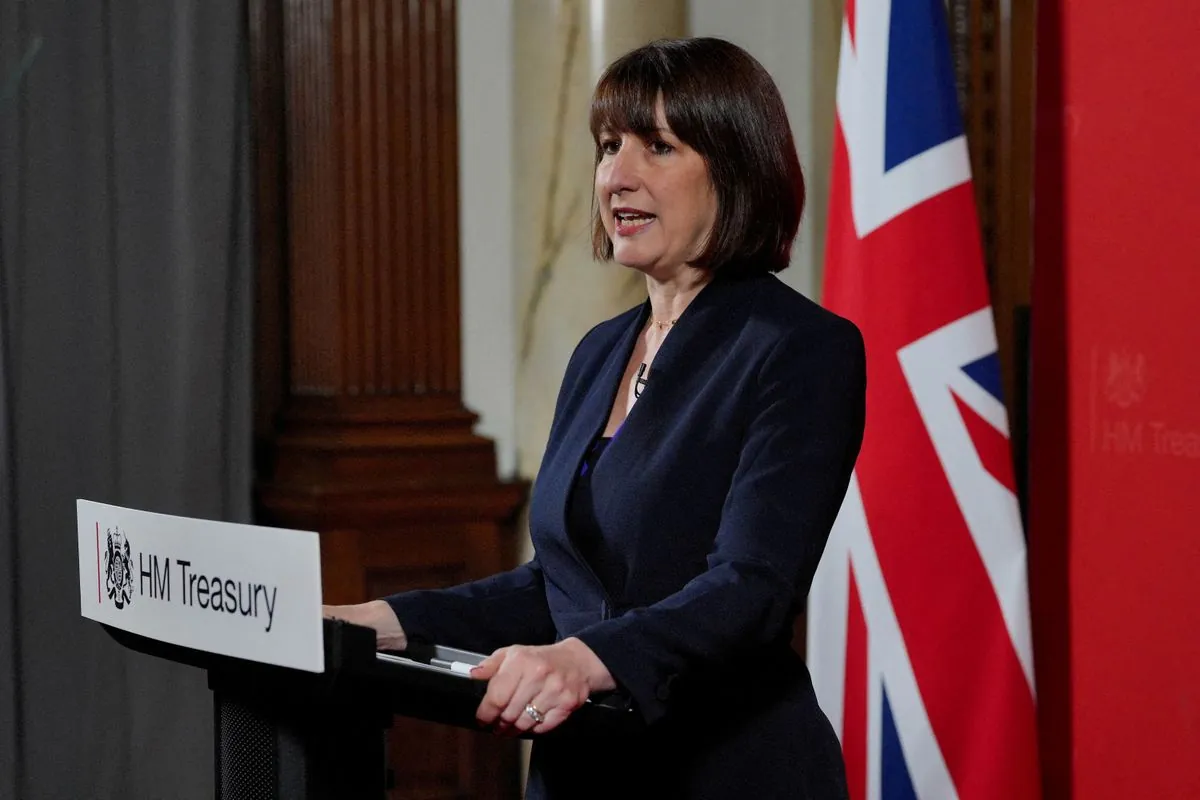Reeves Faces Pressure to Loosen Fiscal Rules Amid Economic Challenges
Chancellor Rachel Reeves maintains fiscal prudence despite calls for increased borrowing. Economists and The Guardian urge changes to fiscal rules, while the OBR warns of unsustainable public finances.

Rachel Reeves, Chancellor of the Exchequer, has demonstrated her commitment to fiscal discipline by eliminating winter fuel payments for the majority of pensioners in July 2024. This decision has sparked a debate on the UK's economic strategy, with left-leaning economists and media outlets calling for increased government borrowing.
The Guardian, a prominent British newspaper, has criticized the current fiscal approach in a recent editorial. Additionally, eight economists, including former cabinet secretary Lord Gus O'Donnell, Mariana Mazzucato from University College London, and Simon Wren-Lewis from the University of Oxford, have penned a letter advocating for changes to the fiscal rules.
These calls for increased borrowing come in the wake of warnings from the Office for Budget Responsibility (OBR) about the sustainability of public finances. The OBR, an independent fiscal watchdog, has highlighted growing pressures on government spending due to an aging population, net zero costs, and defense budget demands.

Labour's manifesto pledges to strengthen the OBR's role, placing Reeves in a challenging position. The party has committed to subjecting all significant fiscal events to independent OBR forecasts, potentially limiting the Chancellor's flexibility.
Economists are divided on the issue of fiscal space. Carsten Jung from the Institute for Public Policy Research suggests that the UK has room for borrowing, citing comparisons with other countries' debt levels. However, the Organisation for Economic Co-operation and Development (OECD) warns that Britain needs to reduce borrowing to rebuild fiscal space following substantial support during recent crises.
The debate also centers on the potential benefits and risks of increased government investment. While some argue that higher investment could boost productivity and economic growth, others caution about the challenges of ensuring effective project delivery and the risks associated with high debt levels.
"Keir Starmer made exacting promises on borrowing. Now he either breaks them – or makes more cuts and bleeds popularity."
Historical data shows that UK fiscal rules have been short-lived, lasting an average of less than four years over the past four decades. This frequent change in fiscal policy may undermine market confidence in the UK's economic management.
Despite mounting pressure from various quarters, Reeves appears committed to maintaining robust fiscal rules. Her spokesperson has reiterated the Chancellor's dedication to fiscal prudence, suggesting that the campaign for increased borrowing may face significant resistance from the Treasury.
As the debate continues, the UK's economic strategy remains a contentious issue, with implications for public services, investment, and long-term fiscal sustainability.


































